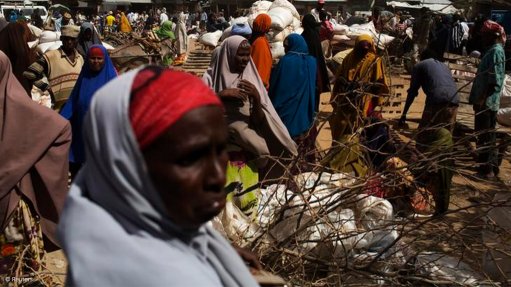
Photo by: Reuters
On World Refugee Day on Tuesday the United Nations released a report stating that almost 66-million people had been forced from their homes during 2016 due to conflict and persecution.
Stressing the very high pace at which conflict and persecution was forcing people to flee their homes, the report stated that this figure equated to one person being displaced every three seconds – less than the time it takes to read this sentence.
The report Global Trends, released by the Office of the UN High Commissioner for Refugees (UNHCR), marked a jump of 300 000 since the end of 2015.
“By any measure this is an unacceptable number,” said UN High Commissioner Filippo Grandi, urging “solidarity and a common purpose in preventing and resolving crisis”.
He also called for properly protecting and caring for the world’s refugees, internally displaced and asylum-seekers – who currently number 22.5-million, 40.3-million, and 2.8-million, respectively.
According to the report, Syria remains “the world’s biggest producer of refugees”, with 12-million people living in neighbouring countries and away from the region.
There are 7.7 -million displaced Colombians, 4.7-million Afghans and 4.2-million Iraqis.
However, in 2016, South Sudan became “the biggest new factor” when peace efforts broke down in July, resulting in some 737 400 people fleeing by the end of the year.
In total, about 3.3-million South Sudanese had fled their homes by the end of the year, in what is known as the fastest growing displacement of people in the world.
About half of the refugee population last year were children younger than 18 years of age, according the report.
This is in contrast to the fact that children make up only about 31 percent of the total world population.
Among its findings, the report noted that some 75 000 asylum claims were received from children travelling alone or separated from their parents.
About 84 percent of the people were in low- or middle-income countries as of end 2016. Of that figure, one in every three people, roughly 4.9-million people, were hosted by the least developed countries.
“This huge imbalance reflects several things, including the continuing lack of consensus internationally when it comes to refugee hosting and the proximity of many poor countries to regions of conflict,” the UN agency said.